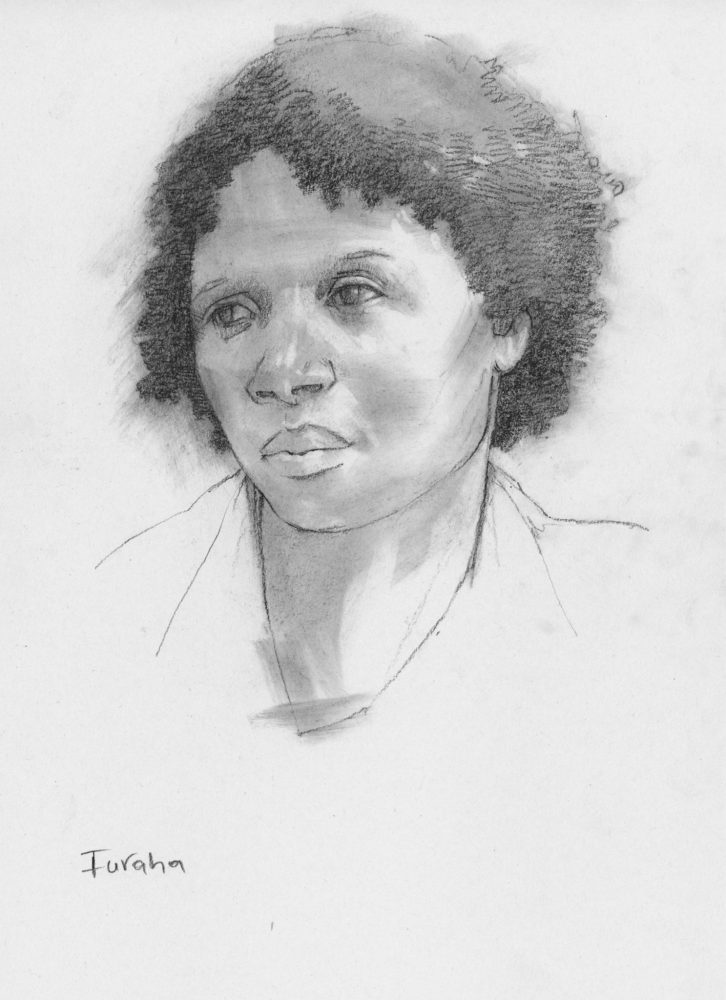Life in Camp is Half Prison
In America I am free and I can plan for the future

My name is Furaha. First of all I am Congolese. My father and my mother, they’re Congolese, so I am Congolese. I had nine siblings. Some of them passed away. We lived in Democratic Republic of the Congo (DRC) until I was 10 years old, and we left because of the war between the government. For me, I feel okay about my life in DRC, I didn’t recognize any difficulty at the time because I was young, I was just home with my parents. I would go to school and come back, it was normal. But my parents recognized the difficulty, and we left and went to Tanzania.
Then, in Tanzania, I lived the life of a refugee.
The refugee life is very difficult, you are not allowed to do things that you need or you want to do, you aren’t free.
The UNHCR (United Nations High Commissioner for Refugees) takes care of the refugees and food, so we were always waiting for someone to wave to you and say ‘okay, this is the food’. So you are often without something to eat or something to wear.
Life in camp is half prison.
I enjoyed the school there, the program that we studied was the same as in our own country, so I had the chance to finish and get my high school diploma. But I had some issues with some of the teachers - one of them wanted to fall in love with me. That was a big issue.
I stayed in that refugee camp until I was about 30 years old. After I graduated, I didn’t have a chance to get a job, so I started a small business selling fish, tomatoes, onions. I bought them from other people and sold them in the camp. We were making some money, but it was not enough.
After 20 years in Tanzania, we started the process to come to America, and we came to Kentucky: me, my husband, and our children. We have six children now, the youngest is 10 months old. My sister lives in New York, but all the rest of my siblings are still in Tanzania with my parents.
I like life in Kentucky, in this community. In Tanzania, we were always looking for money. But here, I really like it because everyone is making money, and we can plan. We are always looking at bills, paying bills. But we say, “Okay, we spent this. This is what we keep for the children and for the future.”
My dream is to own my own house. Maybe one day I can buy a house for my children.
And I dream to have some investments so when I’m old I don’t have to be dependent on other people. From this community, we learned how to plan and care about the future.
A big challenge I face is taking care of the children. I have been in America for almost five years, and I have only worked once. I’m just at home taking care of the kids. I also didn’t go to English classes because of the children. They have a program to take care of children, but the challenge was with the babies. Now that they are older, I am starting English classes again. They’re really good, and I feel happy when I can understand things, but it’s really bad that I didn’t start the classes earlier. I think if I continue with my ESL (English as a Second Language) classes, I will be okay.
My children really enjoy American life: the school system and American foods. We have many shops and African food markets here, and when I try to prepare our African food, they say “What did you prepare that for?”. I make fufu and they ask for noodles.
Our team members obtain informed consent from each individual before an interview takes place. Individuals dictate where their stories may be shared and what personal information they wish to keep private. In situations where the individual is at risk and/or wishes to remain anonymous, alias names are used and other identifying information is removed from interviews immediately after they are received by TSOS. We have also committed not to use refugee images or stories for fundraising purposes without explicit permission. Our top priority is to protect and honor the wishes of our interview subjects.